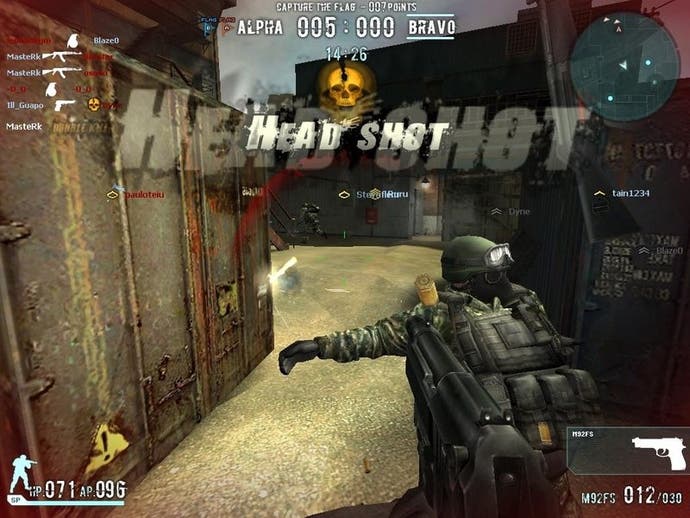Play Fighting
What is it good for?
Kabul, Afghanistan. A young man lies bleeding in the sand. A makeshift bomb has exploded beneath him. The blast has torn the flesh from his legs. Shrapnel has carved a thick red upward trajectory towards his stomach. He's dying. He will never see who killed him, or fully understand why.
Elsewhere, another young life is being extinguished among rubble and smoke. This man has been hit by a sniper's bullet. A direct hit to the head, just above the right temple. He drops like a stone, his companions scattering for cover as they try to see where the fatal shot came from before the next bullet finds them. There's panic, anger, fear.
The difference is, one of these deaths actually happened. That soldier is gone forever, his demise agonising and undignified. His body will be dragged from the battlefield and sent home to a grieving family in a box.
For the other soldier, playing the war on his console at home, death is a fleeting inconvenience. He'll respawn in 10 seconds and be back in the fray. The only lasting effect of his brutal demise will be wounded pride and a digital tick that brings his enemies closer to victory.

Arguably a cheap comparison, but one I'm finding harder and harder to ignore as the first-person shooter genre continues to thunder down the battle-damaged avenue of "realistic" war simulation.
I'm not about to make a shrill demand to BAN THIS SICK FILTH. Nor is this a hand-wringing plea for people to stop making these games, or playing them. I've enjoyed them myself and will probably continue to do so. This is more a personal exploration of the issues, an attempt to work out where we're heading with games like this - and if it's somewhere we want to be going.
Medal of Honor's upcoming rebrand from World War II veteran to Afghan commando crystallised my unease. A lot of the coverage has focused on the fact that you'll be able to play as the Taliban in multiplayer, because that's an obvious ethical hurdle, but that seems like a symptom rather than a cause.
No matter how well crafted the final game turns out to be, I just can't seem to get comfortable with the idea of play fighting in an ongoing conflict. I can't see myself enjoying bomb blasts and bullet hits that have real, deadly counterparts taking lives at this very moment.

Judging by straw polls of friends and discussions on internet message boards, I'm not the only one. Some bowed out when Call of Duty: World at War used archive footage of actual executions to heighten the tension of its opening level. Others said "enough" to Modern Warfare 2's "No Russian" linear shooting gallery of civilian targets.
Playing as a Taliban guerrilla, shooting US troops, will be the last straw for some. Playing a US soldier shooting impoverished insurgents may turn others off. It will be crossed by different people at different times but at some point, inevitably, a line appears in the sand.
It's in the realms of multiplayer where this issue arises most obviously. In a single-player story, even the dumbest shooter can offer up a sliver of context for what's happening. It's usually pretty poor context, but even a slender narrative can offer a small justification for indulging our more bloodthirsty urges.
In multiplayer, there's no narrative. We're playing purely for fun; character and story don't enter into the equation. It's all about the kill. We're rewarded for every enemy taken down, granted more weapons, able to become more and more lethal so long as we kill more than we die. As a gameplay mechanism, its simplicity is brilliant; as a primal link to our atrophying fight or flight response, it's invigorating. That's why so many of us flock to these games.








